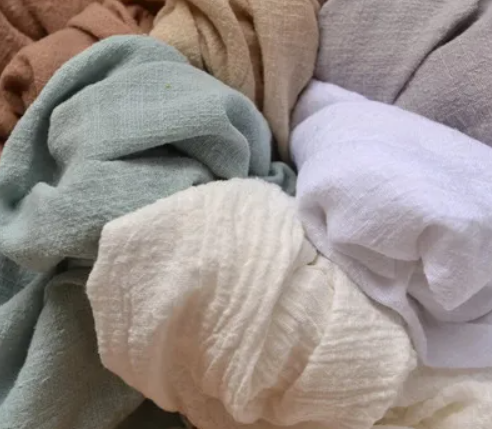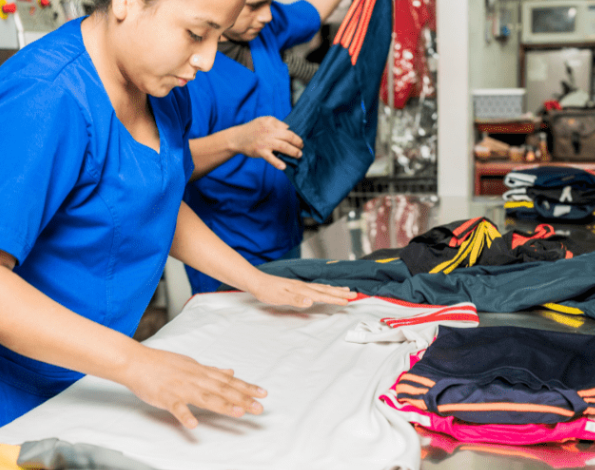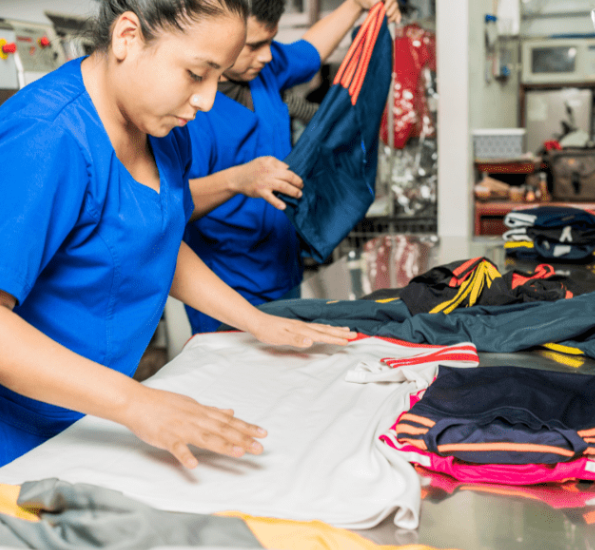
Sustainable Care for Natural Fabrics: Keep Cool with Cotton, Linen, and More
As the summer heat sets in, we often turn to breathable fabrics like cotton, linen, and other natural fibers to keep us cool. These materials are lightweight, moisture-wicking, and gentle on the skin, making them perfect for everything from casual tees to airy sundresses. However, the way we care for these fabrics can significantly affect their longevity and environmental impact.
If you’re looking to extend the life of your favorite summer pieces while being eco-conscious, proper care for natural fibers like cotton, linen, hemp, and bamboo is essential. Let’s take a closer look at how to care for these fabrics in a way that’s kind to both the planet and your clothes.
Why Choose Natural Fibers?
Natural fibers, unlike synthetic materials such as polyester or nylon, are derived from plants or animals. Cotton and linen are widely known for their breathability, softness, and biodegradability. Other fibers like hemp and bamboo are gaining popularity due to their durability and lower water usage during production.
However, it’s important to recognize that even natural fibers come with environmental challenges. Cotton, for example, requires significant water for cultivation. By extending the lifespan of your garments and caring for them sustainably, you can reduce your wardrobe’s overall impact.
Washing Natural Fibers: Do Less, Save More
One of the easiest ways to care for natural fabrics sustainably is by reducing the frequency of washes. Overwashing wears out fibers, wastes water, and consumes energy. Unless your clothes are visibly soiled or have an odor, most natural fiber garments like cotton shirts or linen pants can be worn multiple times before needing a wash.
When it’s time to wash, follow these guidelines:
- Wash in cold water: This saves energy and helps prevent shrinkage or fading.
- Use gentle, eco-friendly detergent: Harsh chemicals can break down natural fibers and harm the environment.
- Select the delicate cycle: This minimizes wear and tear, helping preserve the garment’s structure.
- Avoid bleach and fabric softeners: These can damage natural fibers and affect their breathability.
Drying: Air Dry for Better Care
High heat can shrink or damage natural fabrics. Instead of using a hot dryer for your bamboo or linen pieces, try these tips:
- Air dry whenever possible: Hang your clothes on a clothesline or drying rack to maintain the fabric’s shape and texture. It’s not only more sustainable but also gentler on your clothing.
- Use low heat if you must use a dryer: Remove clothes while slightly damp to minimize wrinkles and static.
- Reshape while drying: Smooth out hems and collars to prevent needing to iron them later.
Ironing and Steaming: Gentle Wrinkle Removal
Natural fibers tend to wrinkle, but you don’t always need to reach for the iron. Instead, try these alternatives to remove wrinkles:
- Use a steamer: It’s gentler on fabric and uses less electricity compared to ironing.
- If ironing, choose the correct heat setting: Cotton can usually handle higher temperatures, while hemp should be ironed with medium heat.
- Iron clothes inside out: This reduces wear on the visible side of the fabric and keeps them looking fresh.
Storage: Let Your Clothes Breathe
Natural fibers need airflow to stay fresh. Avoid storing your clothes in plastic bags or sealed containers, which can trap moisture and lead to mildew.
- Store in a cool, dry place: Natural fibers tend to absorb moisture and odors, so it’s best to keep them in a well-ventilated area.
- Use breathable garment bags or cotton pillowcases for storing delicate or off-season clothes.
- Fold heavy knits or loose weaves: This prevents stretching or misshaping that can happen when hanging.
Extend the Life of Your Natural Fabrics
Choosing natural fibers is a great step toward a more sustainable wardrobe, but how you care for your clothes is just as important. By washing, drying, and storing them mindfully, you can enjoy your breathable summer garments for years to come while minimizing your environmental footprint. With thoughtful care, you’ll stay cool, stylish, and eco-conscious all summer long.





